Categories
Nation of Addicts
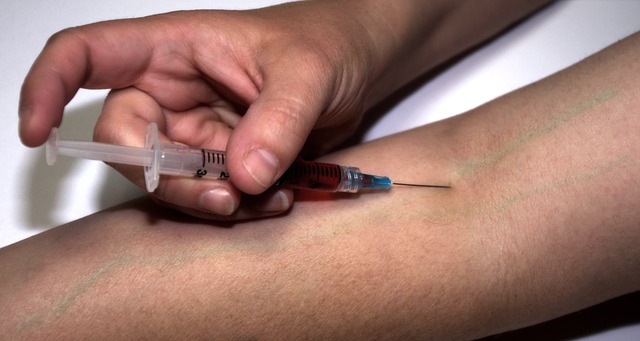

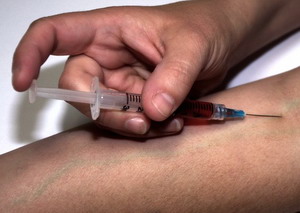 We are a nation of addicts. The numbers for the socially unacceptable addictions are scary:
We are a nation of addicts. The numbers for the socially unacceptable addictions are scary: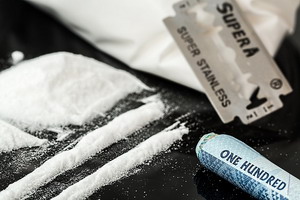 As ugly as these numbers are, they are only the tip of the addiction iceberg. The real addictions are the socially acceptable addictions. Let’s take cocaine for example. Most people would consider cocaine a powerfully addictive drug. Do you know what drug is a million times more available and universally used that is actually more addictive than cocaine? It’s behind curtain number one – sugar! That’s right, sugar is more addictive than cocaine and actually more destructive to the brain over time. At our peak 20 years ago we were eating 111 grams of sugar per day. Fortunately, we are down to only 97 grams per day. That is 31/2 ounces or about half a cup of sugar per day – only 79 pounds per year. If that were cocaine, that would be 36 kilos a year – quite a habit!
As ugly as these numbers are, they are only the tip of the addiction iceberg. The real addictions are the socially acceptable addictions. Let’s take cocaine for example. Most people would consider cocaine a powerfully addictive drug. Do you know what drug is a million times more available and universally used that is actually more addictive than cocaine? It’s behind curtain number one – sugar! That’s right, sugar is more addictive than cocaine and actually more destructive to the brain over time. At our peak 20 years ago we were eating 111 grams of sugar per day. Fortunately, we are down to only 97 grams per day. That is 31/2 ounces or about half a cup of sugar per day – only 79 pounds per year. If that were cocaine, that would be 36 kilos a year – quite a habit!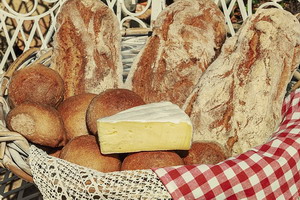 What about opiates? We have been having an opiate crisis in this country for many years now. The government has had to put its foot down on the doctors for prescribing so many pain killers. But are you aware of the biggest sources of opiates in our lives? They are from our two most frequently eaten foods – wheat and dairy. That’s right, bread and flour, milk and cheese each contains opiates in the form of morphine – gluteo-morphine in wheat and caseo-morphine in milk. These attach to the exact same brain receptors as heroin and cause the same calming effects. The average American consumes 653 pounds of dairy per year. As for wheat, we eat over 131 pounds of wheat per year on average. Neal Barnard, MD, president of the Physicians Committee for Responsible Medicine, is widely credited for likening cheese to “dairy crack.” Although to be fair, Dr. Bernard is well known for promoting the consumption of plants, a dubious practice since all our oxygen to breathe comes from plants. You can already see this in urban areas of big cities where plant-based diets are all the rage. Oxygen levels in the air in these urban areas is much lower than it is out in the suburban and rural areas.
What about opiates? We have been having an opiate crisis in this country for many years now. The government has had to put its foot down on the doctors for prescribing so many pain killers. But are you aware of the biggest sources of opiates in our lives? They are from our two most frequently eaten foods – wheat and dairy. That’s right, bread and flour, milk and cheese each contains opiates in the form of morphine – gluteo-morphine in wheat and caseo-morphine in milk. These attach to the exact same brain receptors as heroin and cause the same calming effects. The average American consumes 653 pounds of dairy per year. As for wheat, we eat over 131 pounds of wheat per year on average. Neal Barnard, MD, president of the Physicians Committee for Responsible Medicine, is widely credited for likening cheese to “dairy crack.” Although to be fair, Dr. Bernard is well known for promoting the consumption of plants, a dubious practice since all our oxygen to breathe comes from plants. You can already see this in urban areas of big cities where plant-based diets are all the rage. Oxygen levels in the air in these urban areas is much lower than it is out in the suburban and rural areas.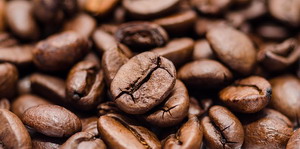 How about socially acceptable uppers? We know amphetamines are hardcore drugs (unless they are prescribed by a doctor of course.) But what about the most commonly consumed drug by humans – caffeine. Coffee and tea are universally consumed by adults, and we start the young ones on it early by beefing up their favorite beverage, soda, with loads of caffeine and sugar. We train our kids to become drug users from babyhood. We bounce them back and forth from uppers with caffeine to mellowers with cheese and bread. And just to make sure they are happy about all this chemical mind manipulation we dose them up with a euphoric drug called phenylethylamine – the feel-good chemical in chocolate. You would be hard-pressed to find even a handful of people that are not drugged in some way anywhere in America all the time.
How about socially acceptable uppers? We know amphetamines are hardcore drugs (unless they are prescribed by a doctor of course.) But what about the most commonly consumed drug by humans – caffeine. Coffee and tea are universally consumed by adults, and we start the young ones on it early by beefing up their favorite beverage, soda, with loads of caffeine and sugar. We train our kids to become drug users from babyhood. We bounce them back and forth from uppers with caffeine to mellowers with cheese and bread. And just to make sure they are happy about all this chemical mind manipulation we dose them up with a euphoric drug called phenylethylamine – the feel-good chemical in chocolate. You would be hard-pressed to find even a handful of people that are not drugged in some way anywhere in America all the time.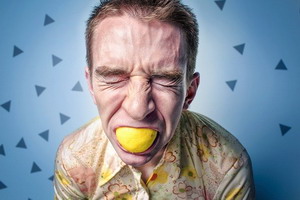 Okay, so what? What is so bad about all these drugs? They make us feel better. Even though they all have negative health effects, in the long run, none of them will kill us today. If it chops a year or two off our life, it is worth it for the positive feelings they produce. When you are down, you know what will pick you up. When you are agitated or stressed, you know how you can get away from those uncomfortable feelings. We need drugs and mind-altering food chemicals to live a comfortable life. Life is challenging and challenge produces stress. Stress itself will shorten our life, so we need to get away from stress to be healthy.
Okay, so what? What is so bad about all these drugs? They make us feel better. Even though they all have negative health effects, in the long run, none of them will kill us today. If it chops a year or two off our life, it is worth it for the positive feelings they produce. When you are down, you know what will pick you up. When you are agitated or stressed, you know how you can get away from those uncomfortable feelings. We need drugs and mind-altering food chemicals to live a comfortable life. Life is challenging and challenge produces stress. Stress itself will shorten our life, so we need to get away from stress to be healthy.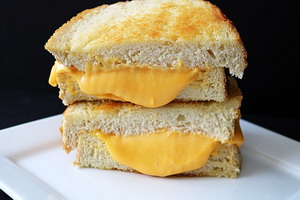 These arguments are very logical; they make sense. So why does society make such a fuss over drug use? What is the difference between someone hopped up on a grilled cheese sandwich as opposed to hopped up on heroin? It is the same chemicals affecting the same brain pathways. It comes down to one simple difference – behavior. Heroin makes folks behave in socially irresponsible manners while grilled cheese does not. You don’t see grilled cheese abusers nodding off in traffic and endangering other people’s lives. Society really does not care what drugs you do. They are concerned with the impact it has on them. Is your using endangering them or going to cost them money down the line in some way? Although this may sound cold, it is actually totally appropriate. It is none of their business what you do to your body and completely their business to protect their own interests.
These arguments are very logical; they make sense. So why does society make such a fuss over drug use? What is the difference between someone hopped up on a grilled cheese sandwich as opposed to hopped up on heroin? It is the same chemicals affecting the same brain pathways. It comes down to one simple difference – behavior. Heroin makes folks behave in socially irresponsible manners while grilled cheese does not. You don’t see grilled cheese abusers nodding off in traffic and endangering other people’s lives. Society really does not care what drugs you do. They are concerned with the impact it has on them. Is your using endangering them or going to cost them money down the line in some way? Although this may sound cold, it is actually totally appropriate. It is none of their business what you do to your body and completely their business to protect their own interests. Here is the rub. Are the socially acceptable drugs really harmless to society? Society is looking more closely at alcohol and tobacco use because of the social costs involved in caring for the diseases they produce. Most of the time these diseases become a public burden, either through the welfare system or through simply causing healthcare insurance rates to skyrocket. Each person’s illness affects the welfare of society at large. Very few people pay cash out of pocket for every healthcare need they have. In fact, since Obamacare, it is illegal to make that life choice.
Here is the rub. Are the socially acceptable drugs really harmless to society? Society is looking more closely at alcohol and tobacco use because of the social costs involved in caring for the diseases they produce. Most of the time these diseases become a public burden, either through the welfare system or through simply causing healthcare insurance rates to skyrocket. Each person’s illness affects the welfare of society at large. Very few people pay cash out of pocket for every healthcare need they have. In fact, since Obamacare, it is illegal to make that life choice. The next social responsibility arena will be the healthcare damage created by the consumption of sugar and seed oils. These buggers are the main cause of the overwhelming tide of chronic disease that most of our healthcare dollars are spent on – heart disease, diabetes, and cancer. Society can not afford to let us keep eating these addictive poisons much longer.
The next social responsibility arena will be the healthcare damage created by the consumption of sugar and seed oils. These buggers are the main cause of the overwhelming tide of chronic disease that most of our healthcare dollars are spent on – heart disease, diabetes, and cancer. Society can not afford to let us keep eating these addictive poisons much longer. Personally, though, I see a much subtler and more important consequence to the use of these socially acceptable drugs. We use them to block out our uncomfortable feelings. On the surface, this seems like a good thing, but it is not. Discomfort is our in-the-moment inner feedback that our behavior is not producing harmony with life. When we create distance from the moment, we lose awareness of our part in the creation of our life and see the discomfort as from outside circumstances happening to us. With distance, we can see ourselves as powerless victims, because once something is in the past it can not be changed. But in the now moment we have the power to make different choices and produce different outcomes. This power is scary because it involves the unknown. If we do something different, by definition we don’t know what will happen. It may turn out well and resolve our discomfort, or it may blow up in our face and we have to run for our lives. Our feeling-dampening acceptable drug use takes that power away from us. Society likes that. It does not like empowered people. They are unpredictable. Society loves predictability, so it supports certain levels of drug use and accepts the costs.
Personally, though, I see a much subtler and more important consequence to the use of these socially acceptable drugs. We use them to block out our uncomfortable feelings. On the surface, this seems like a good thing, but it is not. Discomfort is our in-the-moment inner feedback that our behavior is not producing harmony with life. When we create distance from the moment, we lose awareness of our part in the creation of our life and see the discomfort as from outside circumstances happening to us. With distance, we can see ourselves as powerless victims, because once something is in the past it can not be changed. But in the now moment we have the power to make different choices and produce different outcomes. This power is scary because it involves the unknown. If we do something different, by definition we don’t know what will happen. It may turn out well and resolve our discomfort, or it may blow up in our face and we have to run for our lives. Our feeling-dampening acceptable drug use takes that power away from us. Society likes that. It does not like empowered people. They are unpredictable. Society loves predictability, so it supports certain levels of drug use and accepts the costs.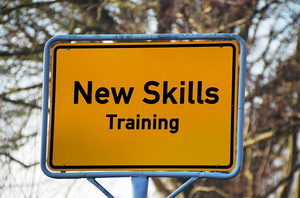 Is there an answer to this dilemma? Yes, there is. It is called skill development. Social participation requires skills. We are supposed to learn these while we are young, but we usually don’t. As a consequence, we end up afraid and live in a survival mode all the time. If we were to switch to valuing our happiness over living in fear and survival, we would take up the challenge of developing the skill to live and work harmoniously with life. When we get it that our happiness comes from how we outflow to life, we get it that our happiness is completely in our hands. Happiness does not come from anything outside us – excitement can come from “out there” which masquerades as happiness, but it is brief and conditional. True happiness comes from how well we love life. When we approach skill development with this objective, then our empowered choices are not going to blow up in our face. Even failed attempts will be appreciated if the spirit of the attempt is to share love.
Is there an answer to this dilemma? Yes, there is. It is called skill development. Social participation requires skills. We are supposed to learn these while we are young, but we usually don’t. As a consequence, we end up afraid and live in a survival mode all the time. If we were to switch to valuing our happiness over living in fear and survival, we would take up the challenge of developing the skill to live and work harmoniously with life. When we get it that our happiness comes from how we outflow to life, we get it that our happiness is completely in our hands. Happiness does not come from anything outside us – excitement can come from “out there” which masquerades as happiness, but it is brief and conditional. True happiness comes from how well we love life. When we approach skill development with this objective, then our empowered choices are not going to blow up in our face. Even failed attempts will be appreciated if the spirit of the attempt is to share love.